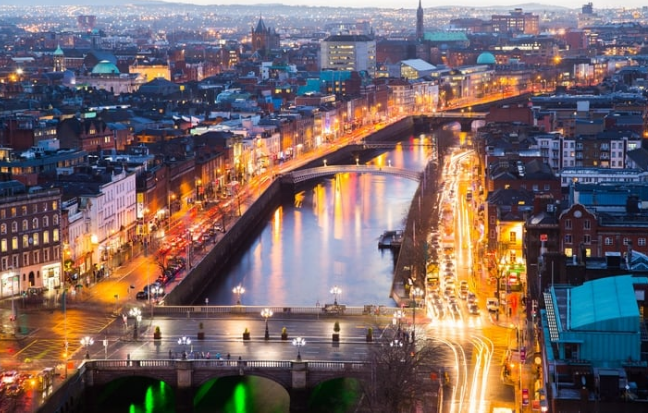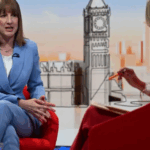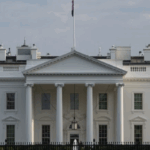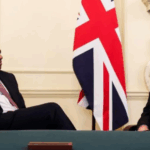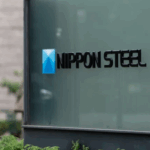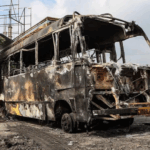Tánaiste Simon Harris has warned that while Ireland’s economy remains robust, significant external risks threaten to undermine its stability, including the looming threat of increased US tariffs. Speaking at the opening of the National Economic Dialogue at Dublin Castle, Harris highlighted the limited time left to avoid a trade standoff between the EU and the US, with just 23 days until a pause on tariff hikes expires.
Referring to his recent talks with US Trade Representative Jamieson Greer, Harris said he was “encouraged” by the tone of discussions, which he believes are now entering a more serious phase. “Anybody who speaks with certainty these days would be misplaced,” he said. “But I was encouraged… that it was moving to the substantive phase of negotiations.”
Harris called the potential reintroduction of tariffs “the most serious challenge to transatlantic economic relations in generations,” warning that failure to resolve trade tensions could jeopardise Ireland’s export-dependent economy.
Finance Minister Paschal Donohoe also addressed the gathering and was pressed on whether global instability could impact planned tax cuts in Budget 2026. Donohoe said the government remained committed to its election promises, but stressed that protecting public finances, supporting jobs, and investing in infrastructure would take priority. “We must keep our public finances safe,” he said.
The National Economic Dialogue is an annual forum that brings together government officials, business leaders, trade unions, charities, and environmental groups to discuss Ireland’s economic strategy ahead of the Budget. It is not intended to produce policy decisions but helps shape pre-budget submissions from participants.
Taoiseach Micheál Martin opened the conference by underscoring the urgency of improving delivery in key sectors such as housing, energy, water, and healthcare. Minister for Public Expenditure Jack Chambers echoed this call, stating that reforming infrastructure delivery through the National Development Plan is essential for enhancing Ireland’s competitiveness.
Despite positive economic indicators, Donohoe cautioned that Ireland’s growth figures are overly reliant on a small number of multinationals. “It is not appropriate—indeed, it could be dangerous—to plan on the basis of these receipts being permanent,” he said.
Outside the Cabinet, trade unions and advocacy groups expressed growing concern. Irish Congress of Trade Unions General Secretary Owen Reidy warned that Ireland’s economic model is overly dependent on corporation tax windfalls and urged long-term planning. “We have an over-reliance on a handful of firms, significant wage inequality, and major infrastructure deficits,” he said.
Social Justice Ireland and climate campaigners also called for increased public investment and sustainable tax reform to prepare for future shocks. “Work must begin now on planning for a sustainable tax-take,” said John McGeady, CEO of Social Justice Ireland.
As talks continue, the government faces rising pressure to balance fiscal prudence with transformative investment — all while navigating a fast-changing global economic landscape.



